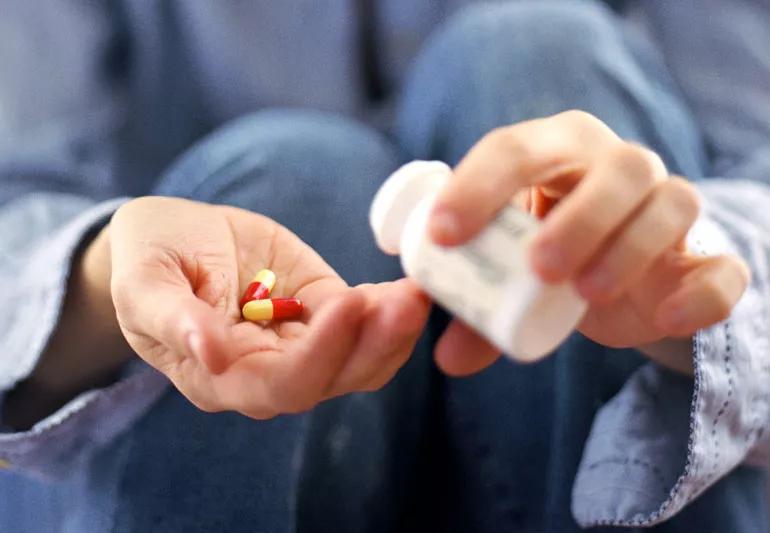What really happens when Tylenol and alcohol mix

Image content: This image is available to view online.
View image online (https://assets.clevelandclinic.org/transform/cc169ca2-15c7-417d-9e9b-e1194effbb9c/acetaminophen-88307832-770x553-1_jpg)
Acetaminophen after a night of drinking
There are times where festivities abound and, a few drinks later, our heads pound. Some people wonder if it’s bad to take acetaminophen, more commonly known as Tylenol®, for a headache after drinking alcohol.
Advertisement
Cleveland Clinic is a non-profit academic medical center. Advertising on our site helps support our mission. We do not endorse non-Cleveland Clinic products or services. Policy
Hepatologist Christina Lindenmeyer, MD, has the answers.
As it does for many medications, your body metabolizes acetaminophen in the liver. When you take the recommended dosage, most of it is converted by your liver into a benign substance that’s removed in your urine.
Your body converts a very small byproduct of metabolized acetaminophen into a toxic substance that can be harmful to your liver. Luckily, a secondary substance called glutathione helps minimize the toxic effects.
However, if you take too much acetaminophen, or if the liver does not have an abundant reserve of glutathione, the toxic metabolite can accumulate and cause significant damage to your liver.
Alcohol is also metabolized by liver cells. In fact, both acetaminophen and alcohol utilize glutathione in the liver to temper their toxic effects.
“Over time, chronic, heavy alcohol intake depletes your liver of its glutathione stores, which can lead to problems when acetaminophen is added to the mix,” Dr. Lindenmeyer says.
Typically, taking a normal dose of acetaminophen (no more than 4,000 mg in a day) after one night of drinking should not cause liver damage. However, regular, heavy alcohol use (more than one drink daily for women or more than two drinks daily for men) combined with repeated daily doses of acetaminophen predisposes the liver to acetaminophen-associated toxicity.
Advertisement
In general, if you’re going to drink at a party or other social event and you take a couple of doses of acetaminophen the next day for your headache (again, no more than 4000 mg in a day), you should be fine.
However, if you regularly drink more than the recommended number of alcoholic drinks per day, you’d be best off to only use acetaminophen in rare instances and avoid daily doses greater than 4,000 mg.
Advertisement

Delivered every Tuesday!
Sign up for our Health Essentials emails for expert guidance on nutrition, fitness, sleep, skin care and more
It's a letter about the news!
Learn more about our editorial process.
Advertisement
You can alternate these OTCs to help with pain control and fever reduction
Who reigns supreme in the battle of the painkillers?
Limit how often you take the pain reliever during your pregnancy
Most recommended precautions center around minimizing bruising or swelling
Even one drink can have an impact on your cognitive function leading to slurred speech, blurred vision and impaired memory
Understand who may (and may not) benefit
Type 2 diabetes isn’t inevitable with these dietary changes
Applying a hot or cold compress can help with pain
Pump up your iron intake with foods like tuna, tofu and turkey